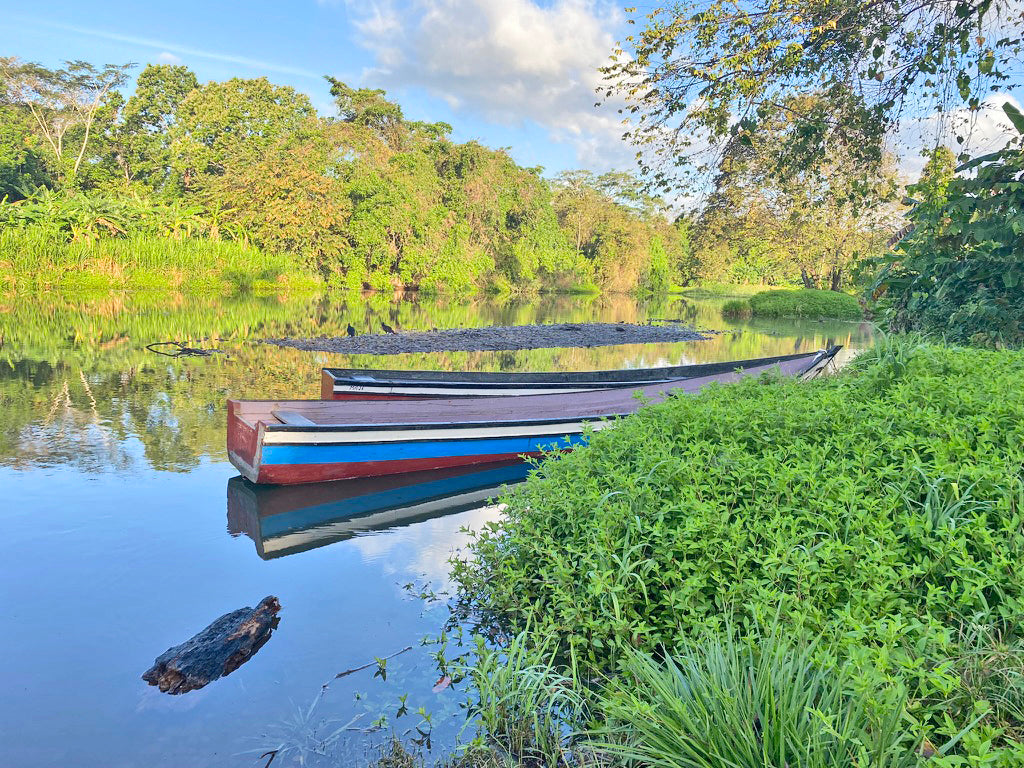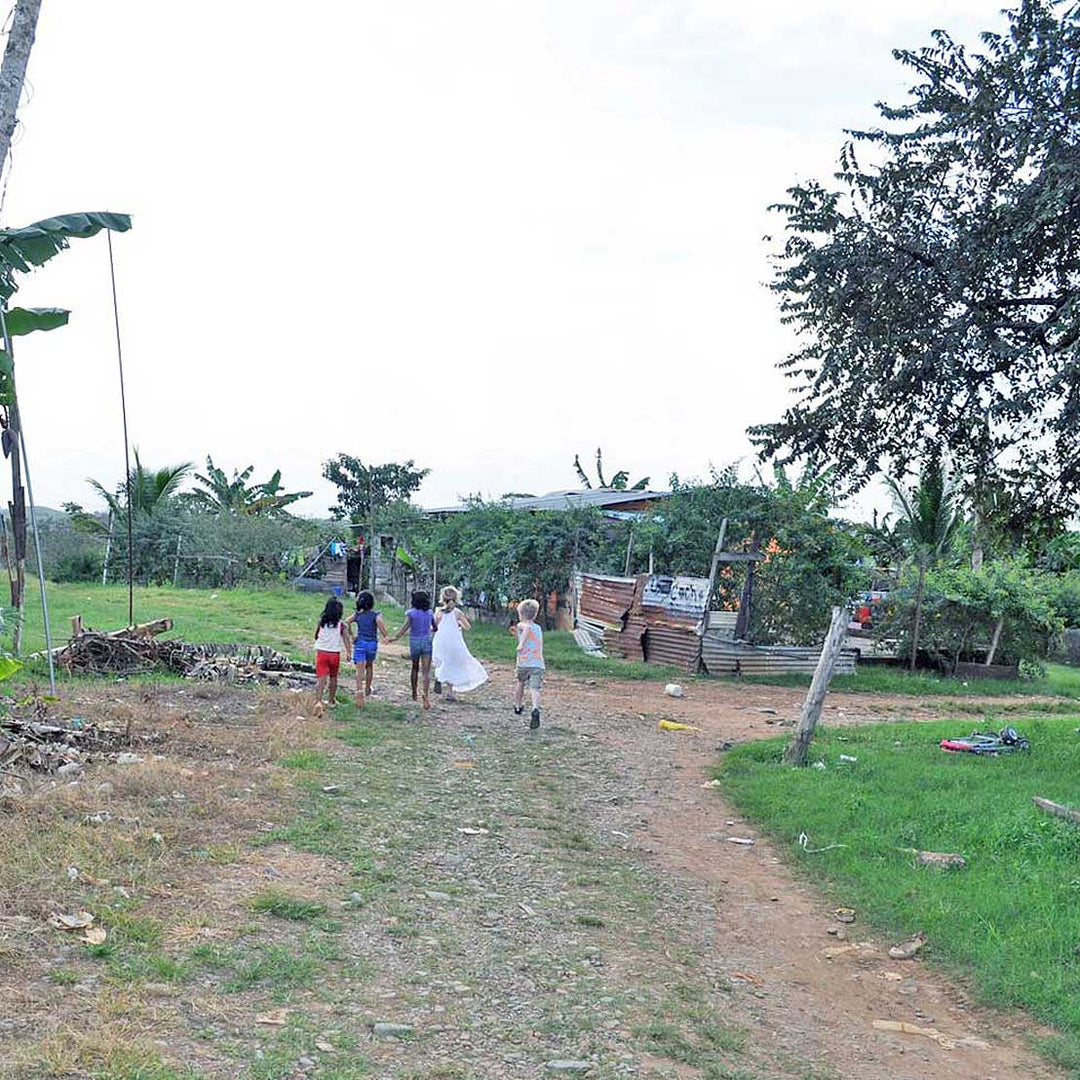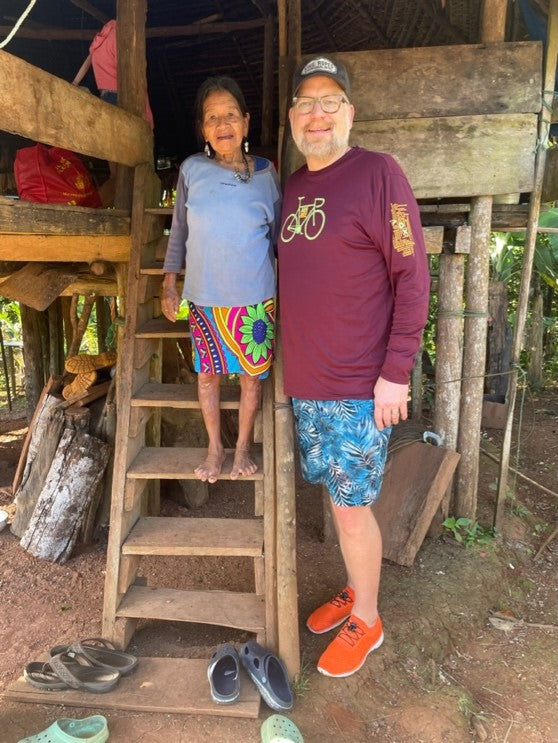Canoe Ceremony: Haai Hi Jeujem
On a visit to Majé, a central Wounaan village tucked deep in the Darién rainforest of Panama, we were invited to learn about a ceremonial practice that reshapes how we understand water—not just as a means of transport, but as a vessel for connection.
Along Wounaan rivers and coastal areas, canoes carry more than people and goods—they carry news. Word-of-mouth communication travels by water, passed from village to village in dugout canoes. This flow of information doesn’t stop at the physical. It also extends to the spiritual.
In a ceremony known as Haai Hi Jeujem—translated as Prayer to God—a small ceremonial canoe is brought inside the home. It’s decorated with fresh flowers, and those participating wear all white with floral crowns. They enter the canoe not to travel downriver, but to speak—to God, and to loved ones who have passed on. It’s a moment of stillness, reflection, and reverence. A way to stay connected, across time and worlds.
While the Mennonite faith is now the most practiced religion in many Wounaan communities, it often blends with older, traditional beliefs. That spiritual duality—both rooted and evolving—can be seen not only in ceremonies like Haai Hi Jeujem, but in the symbolism woven into Wounaan baskets. Designs carry meaning, just as canoes carry memory. Both are shaped by hand, and guided by something deeper.







